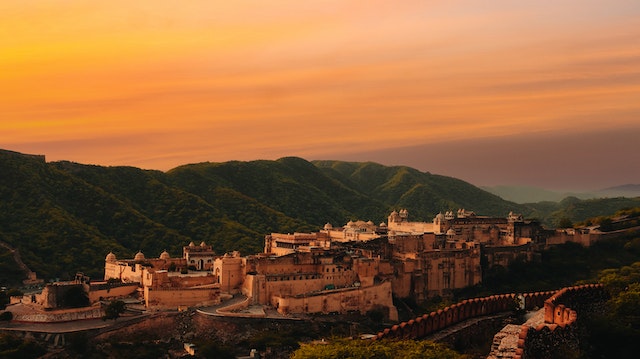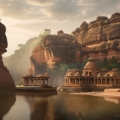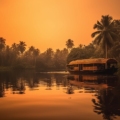Rajasthan, the Land of Kings, is a mesmerizing state in northern India that boasts a rich tapestry of history, culture, and natural beauty. Known for its majestic forts, opulent palaces, vibrant festivals, and the sprawling Thar Desert, Rajasthan is a traveler’s paradise. In this article, we’ll explore some of the most enchanting places to visit in this regal state, each offering a unique glimpse into its royal heritage.
Jaipur
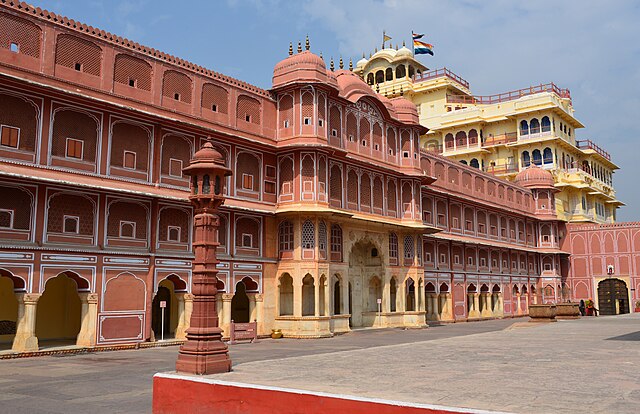
The Pink City: Jaipur, the capital city of Rajasthan, is a treasure trove of historical and architectural wonders. It earned its nickname, the “Pink City,” due to the stunning pink-hued buildings that adorn its old town. Key attractions include the Amber Fort, City Palace, Hawa Mahal (Palace of Winds), and Jantar Mantar, an astronomical observatory. Don’t forget to explore the bustling bazaars of Johari Bazaar and Bapu Bazaar for exquisite handicrafts and jewelry.
Udaipur
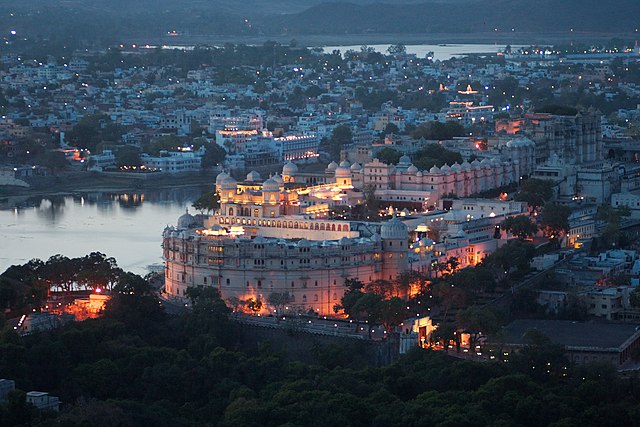
The City of Lakes: Nestled amidst the Aravalli Hills, Udaipur is often referred to as the “Venice of the East” due to its enchanting lakes and romantic ambiance.The City Palace, situated gracefully alongside the shores of Lake Pichola, stands as a magnificent showcase of Rajput architecture.Take a boat ride on Lake Pichola to witness the picturesque Lake Palace and Jag Mandir.Udaipur has gained fame for its exceptionally beautiful miniature paintings.
Jodhpur
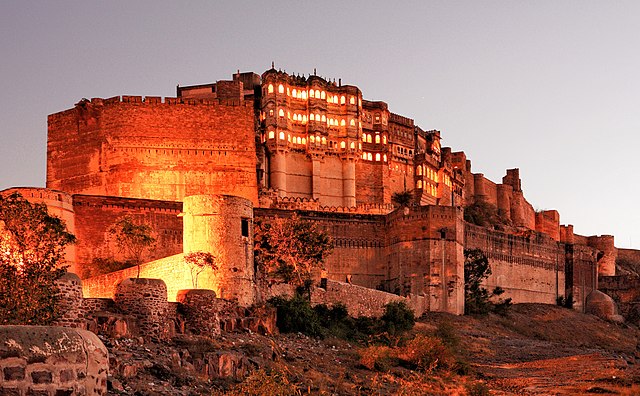
The Blue City: Jodhpur, with its striking blue-painted houses, is a captivating destination in Rajasthan. The majestic Mehrangarh Fort dominates the skyline and offers panoramic views of the city. Explore the Umaid Bhawan Palace, a luxurious hotel that is also a museum. The bustling bazaars of Jodhpur are perfect for shopping for traditional textiles, handicrafts, and spices.
Jaisalmer
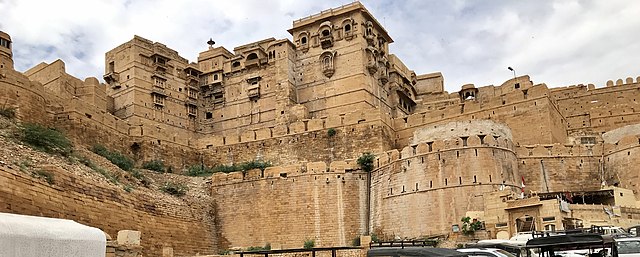
The Golden City: Jaisalmer, a jewel in the heart of the Thar Desert, is renowned for its golden sandstone architecture. The stunning Jaisalmer Fort is one of the few “living forts” in the world, as people still reside within its walls. Take a camel safari into the dunes of the Sam Sand Dunes for a magical desert experience. The city’s intricate havelis (mansions) are a testament to its artistic heritage.
Pushkar
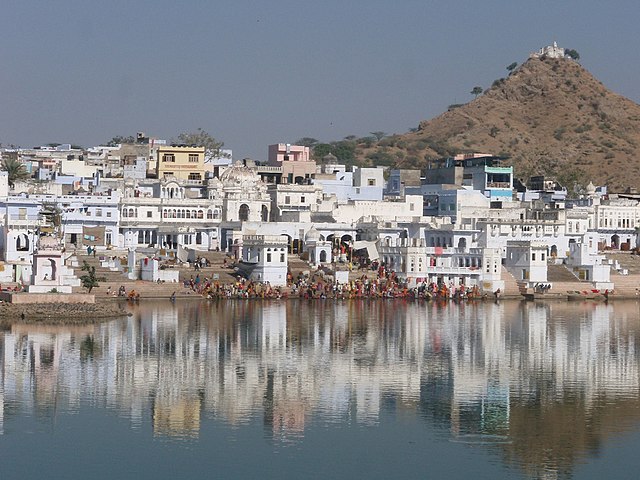
The Holy Town: Pushkar is a sacred town known for its tranquil atmosphere and the famous Pushkar Lake.The Brahma Temple, devoted to Lord Brahma, stands as one of the rare temples worldwide dedicated to this divine figure. The town is also famous for its annual Pushkar Camel Fair, a vibrant spectacle that attracts travelers from around the world.
Ajmer
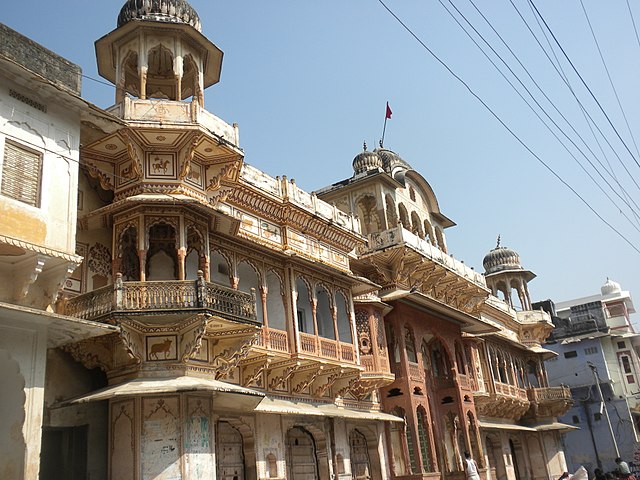
The Spiritual Hub: Adjacent to Pushkar, Ajmer is a significant religious center for both Hindus and Muslims. The Ajmer Sharif Dargah, the shrine of Sufi saint Khwaja Moinuddin Chishti, draws devotees and tourists alike. The Ana Sagar Lake and Taragarh Fort are other attractions in this historical city.
Ranthambore

The Tiger’s Lair: For wildlife enthusiasts, Ranthambore National Park is a must-visit destination. This wildlife sanctuary is renowned for its population of Bengal tigers and offers thrilling safari experiences. Besides tigers, you can spot a wide range of wildlife, including leopards, crocodiles, and various bird species.
Conclusion:
Rajasthan is a land of contrasts, where ancient forts and palaces coexist with the stark beauty of the Thar Desert. Its rich cultural heritage, warm hospitality, and diverse landscapes make it a remarkable destination for travelers. Exploring the royal palaces, vibrant markets, and natural wonders of Rajasthan was an unforgettable journey through the heart of India’s regal past. So, pack your bags, embark on this royal odyssey, and experience the magic of Rajasthan for yourself.
Frequently Asked Questions (FAQs)
What is the ideal time to explore Rajasthan?
The best time to visit Rajasthan is during the winter months, from October to March, when the weather is pleasant and conducive to exploring the region’s attractions. Summers can be scorching, with temperatures soaring above 40 °C, making it less comfortable for tourists.
2. How can I travel between cities in Rajasthan?
Rajasthan is well-connected by road, rail, and air. You can choose between buses, trains, or domestic flights to travel between cities. The state also has a well-developed network of highways for road trips.
3. What should I wear when visiting Rajasthan?
Rajasthan has a conservative dress code, especially in rural areas and religious sites.It is recommended to don attire that is modest, covering both your shoulders and knees.
4. Is Rajasthan safe for solo travelers and women?
Rajasthan is generally safe for tourists, including solo travelers and women. However, it’s essential to take standard safety precautions, such as avoiding poorly lit areas at night and not accepting rides from strangers.To prevent unwanted attention, it’s advisable to dress modestly.
5. What are some must-try dishes in Rajasthan?
Rajasthan offers a variety of delicious cuisine. Don’t miss trying dishes like Dal Baati Churma (a traditional Rajasthani meal), Gatte ki Sabzi, Ker Sangri (a desert vegetable dish), and traditional sweets like Ghewar and Mawa Kachori.
6. Can I purchase traditional Rajasthani handicrafts and textiles?
Absolutely! Rajasthan is renowned for its intricate handicrafts and textiles. You can shop for items like Bandhani (tie-and-dye) fabrics, embroidered garments, leather goods, jewelry, and pottery in local markets and bazaars.
7. What are some popular festivals in Rajasthan?
Rajasthan is famous for its colorful festivals. The Pushkar Camel Fair, Jaipur Literature Festival, and Desert Festival in Jaisalmer are some of the most renowned events. Diwali, Holi, and Teej are also celebrated with great fervor.
8. Is it safe to drink tap water in Rajasthan?
It is advisable to drink bottled or purified water to avoid stomach issues.The majority of hotels and restaurants ensure the provision of safe drinking water for their patrons.Carry a reusable water bottle to minimize plastic waste.
9. Are there any health precautions I should take before traveling to Rajasthan?
It’s recommended to consult your healthcare provider for vaccinations and health advice specific to your trip. Carry any necessary medications and be cautious about what you eat and drink to prevent foodborne illnesses.
10. How can I respect the local customs and traditions in Rajasthan?
Show respect when visiting temples and religious sites by covering your head, removing shoes, and dressing modestly. Ask for permission before taking photos of people, especially in rural areas, and avoid public displays of affection
